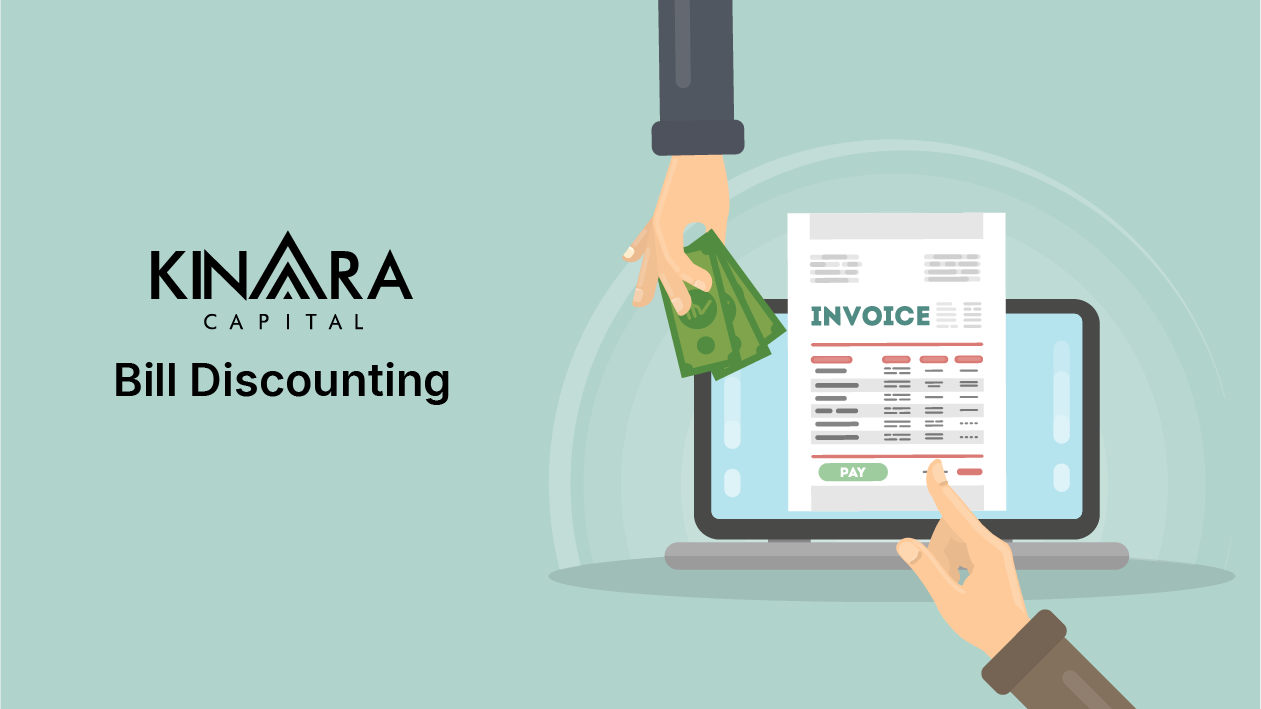
Bill discounting, also known as invoice discounting, is a financial tool that helps every business entity improve its cash flow by turning the status of unpaid invoices into instant cash. Businesses need not wait for customers to pay. They can approach any bank or other financial institute to discount the invoice and get a proportionate value in advance. This helps an enterprise meet its working capital requirement in the least possible time. In this article, we will discuss the bill discounting process, its benefits, and the eligibility criteria a business needs to possess while seeking this useful financing facility.
Bill discounting is a financial facility provided by banks and other financial lending institutions wherein enterprises sell their due and as-yet unpaid invoices in exchange for ready cash. Instead of waiting for the customer to pay against an invoice, a percentage value of the invoice is received directly from the bank for improved cash flow, which in return manages the working capital. The bank subsequently collects the payment from the customer at the invoice’s due date.
What is bill discounting in banks? It is a form of short-term finance where the business charges its receivables against liquid funds instead of immediate receipt to the bank. In turn, it deducts some nominal charge or discount on such service. Let’s understand a bill discounting example, if there is an outstanding invoice for ₹1,00,000, the bank might advance ₹80,000 upfront, and the remaining amount is released after the customer settles the invoice, minus any service fees.
If a firm sells certain goods to a customer on credit, instead of waiting for 60 or 90 days, the firm can take that invoice to the bank. The bank advances 80% of the invoice value to the firm, through which the firm keeps its cash flow smooth.
A bill discounting facility has a number of advantages for businesses, especially in the case of MSMEs. It converts outstanding invoices to liquidity for the business to manage the working capital of the business, hence giving them easy and quick access to cash. It is collateral-free; hence, smaller businesses can access funds with ease. It helps MSMEs shrink the gap between their invoice generation and payment collection, improving the cash flow. This also empowers the firm to cash in on new opportunities without waiting for customer payments, hence making MSME bill discounting an important financial tool.
The bill discounting procedure follows a simple step-by-step approach:
This invoicing discounting process ensures businesses receive timely funds to manage their cash flow, offering financial flexibility without waiting for long customer payment periods.
To avail of invoice discounting facilities, one must follow the business requirements prescribed by the bank or financial institution. Firstly, the business must create valid invoices for a known customer with good credit standing. Invoices are supposed to be issued for sales or services that have already been performed but have yet to be paid. Even buyers’ credit standing should be verified to determine whether they can settle the invoice when it becomes due.
Also, a company should be able to provide a business requirements document; this includes financial statements, proof of trading, and any other documentation proving the stability of cash flow. A company must have an excellent financial history.
Bill discounting is one of the most effective financial tools for maintaining efficient business cash flow. It facilitates instant liquidity without collateral and is particularly helpful for MSMEs and companies with large outstanding invoices. Understanding the process, eligibility criteria, and benefits will help businesses better use this service to meet short-term financial needs. Implementing this solution may ensure smoother operation and sustained business growth.
One must present the invoices, proof of sales, and all possible related documents like purchase orders, balance sheets, and customer information to avail of the bill discounting facility. The bank will also demand the buyer’s credit history and company identification documents.
You can get cash within days from the date of the invoice. Once the bank has confirmed the invoice’s validity and the buyer’s creditworthiness, it makes a percentage of the invoice amount available to the business.
Yes, bill discounting services are available to MSMEs. They are among the best options for financing small and medium-scale enterprises regarding cash flow optimisation without collateral.
Limitations regarding invoice value vary from bank to bank or financial institution. Some may consider a minimum or maximum value of the invoice for discounting.
The discount rate depends on various factors, such as the buyer’s creditworthiness, terms of payment, and the business’s financial position. Further, the market rate of interest and risk associated with the transaction support the rate.
